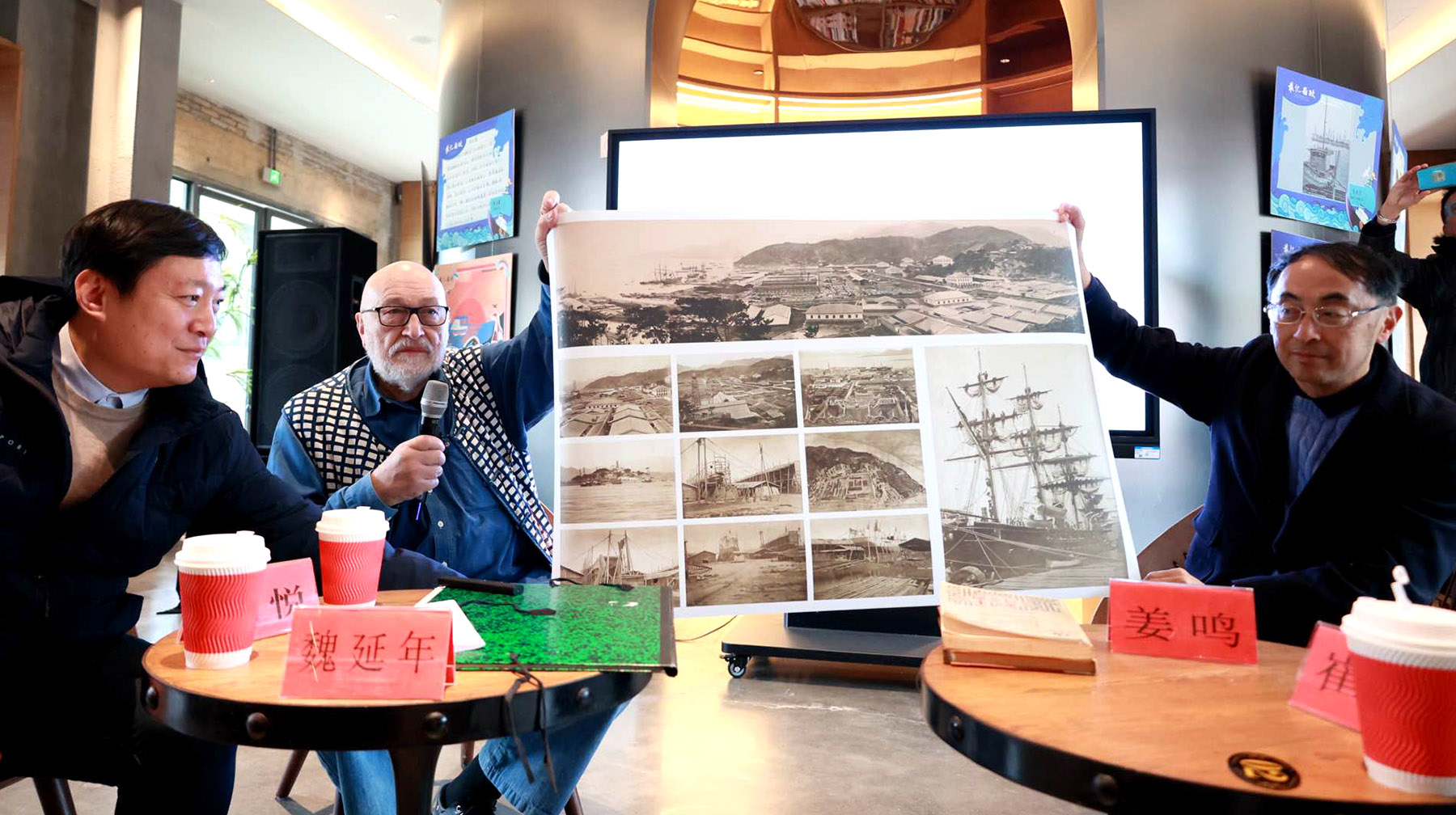
For the past three decades, Rene Vienet, 80, dedicated himself to studying and promoting what Chinese historians call the "Chuanzheng culture", also known as the shipbuilding culture.
Vienet, a French scholar of modern Chinese history, studied the fascinating past of the Fuzhou Shipping Bureau and the Fuzhou Shipping School, which were both established in 1866. Prosper Giquel, a French naval officer, played a significant role in the building and growth of the bureau and the school.
Chinese and French people should be proud of Giquel’s dedication and achievements — a model that can and should be developed.
Rene Vienet, French scholar of modern Chinese history
Vienet said he considers Giquel as a model for cooperation between China and France, and admires the naval officer's role in introducing new technologies to China and the promotion of French language teaching in China.
"Chinese and French people should be proud of Giquel's dedication and achievements — a model that can and should be developed," he said. "I have been collecting historical materials on Giquel since 1983, and I am grateful to his heir, Arnaud de Panafieu, for opening their rich family archives."
READ MORE: Xi's visit to solidify robust ties
This year marks the 60th anniversary of the establishment of diplomatic relations between China and France.
Vienet said he and de Panafieu have been invited to give lectures on Giquel at the Lyon public library and to display on-screen historical documents and photos related to Giquel at the Ecole Polytechnique alumni hall.
These events will help French people better understand Chinese history and Giquel's key role in China's progress, he said.
Giquel (1835-86), who came to China in 1857, asked for leave from the French Navy to learn the Chinese language, according to Vienet.
In 1866, Zuo Zongtang, an official of the Qing Dynasty (1644-1911), appointed Giquel as director of the shipping bureau and school, which were built in present-day Mawei district of Fuzhou, the capital of East China's Fujian province.
Giquel, who spoke fluent Chinese and loved China, devoted his heart and soul to the bureau and the school, Vienet said.
About 50 French engineers and teachers joined Giquel's team over a period of 10 years. Dozens of children in Fujian became fluent French speakers and many young people mastered European technologies, he said.
The shipyard was among the most modern in Asia, and by the end of 1873, as many as 15 modern vessels, complete with propellers and steam engines, had been built by 2,500 Chinese workers trained to use European machinery, according to Vienet.
"This was an incredible performance of swift and effective technology transfer. And for sure, the very first one in modern China," he said.
Giquel, together with his friend Lemaire, drafted and published the first French-Chinese dictionary, with the focus on technical shipbuilding vocabulary, Vienet said, adding that Giquel also made arrangements for his students at the Fuzhou Shipping School to pursue higher studies in France and the United Kingdom in 1875.
In 2014, to commemorate Giquel's pioneering efforts in developing the China-France friendship, then French minister of foreign affairs Laurent Fabius presented to the Museum of Foochow Arsenal in Mawei a replica of Giquel's bronze statue, which was cast and given to his family after his funeral in 1886.
In 2006, for the 140th anniversary of the founding of the Fuzhou Shipping Bureau, Vienet and his friend, Du Liyan, brought rare photos, which were till then not seen in China, to Lin Yingyao, an official with Fujian Mawei Shipbuilding Co, which was preceded by the shipping bureau.
Lin received the photos with gratitude, and soon exhibited them in one of the surviving magnificent red-brick buildings that Giquel had helped build, Vienet said.
Lin also highly praised the photos, saying that they precisely depicted the shipbuilding technology of the time. Vienet was later invited to deliver several lectures in Fuzhou.
"Stimulated by my warm exchanges with friends in Mawei, I reached out to the heirs of Giquel in France, particularly Arnaud de Panafieu, who made available their family archives, a fantastic trove of historical documents," he said.
In 2016, for the 150th anniversary of the bureau, the French scholar was again invited to Mawei, where he presented a large collection of rare photos, books and engravings from the Giquel family archives and his own collections.
By 2026, which will be the 160th anniversary, Vienet and de Panafieu will cooperate with the French national marine museum to organize an exhibition in Lorient Harbour, a port in northwestern France and the birthplace of Giquel.
Vienet expressed the hope that more French people will travel to Fujian and visit the Museum of Foochow Arsenal, to better understand the two countries' history and further boost their friendship.
ALSO READ: Strengthening of Sino-French friendship will also be a boon for rest of the world
"I am very happy to see that Fujian province is sparing no effort to explore its cultural resources and actively protect and make good use of its historical sites," he said.
A multidimensional experience play, The Glory Belongs to Fuzhou Arsenal, was officially performed in Mawei in December to revisit the spirit of shipbuilding.
Vienet also mentioned the possible screening of a documentary, displaying the historical photos and documents on Giquel related to the development of the Chuanzheng Culture Theme Park around the Museum of Foochow Arsenal.
Contact the writers at zhaojia@chinadaily.com.cn


